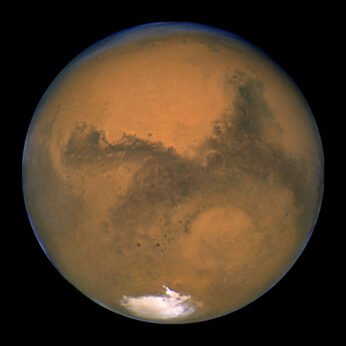
The year is 2075. The location is the Mars Fulfillment Center.
A weak sun crests over the Martian landscape, illuminating the squat settlement. The Martian workers file out of their AmazonCubes toward the fulfillment center, ready to begin their shift. The Martian day is 37 minutes longer than Earth’s, and shifts have been accordingly lengthened, though, in keeping with tradition, employees are not allowed more than 60 seconds per four hours for a bathroom break.
Luckily, the workers have been bio-engineered by AmazonGenetics to eliminate such biological inefficiencies. It was a small price to pay for getting the chance to follow Jeff into space. Plus, all of the workers have access to Prime and one-day delivery, redeemable with their wages paid in the new Martian currency, BezosBucks. There are even rumors that delivery will soon be expanded to the Jovian colonies, but that’s still a few years away.
The history of Amazon Mars was never a certainty. Since the immortal founder’s ascent into the heavens on July 20, 2021, there were whispers of discontent among the working people of Earth. Did someone really pay $28 million to join Jeff and his brother Mark on their 10-minute space flight? Do these flights really cost $10 million each? And what exactly was the plan once Amazon became a player in the space sector?
Traditionally the realm of public action, how will space look when it is effectively privatized? We know that the money to be made in space is (pun intended) astronomical. But why shouldn’t an honest businessman like Bezos get the chance to expand Amazon to the final frontier?

The Earth governments were more than happy to shift the important burden of space exploration to the private sector: Let them cover the cost and we’ll reap the benefits. Back on Bezos’ homeworld, the bourgeois politicians certainly wouldn’t stand up for a mutually beneficial and egalitarian movement into space. With politically isolated and fragmented worker’s parties, how could the working class ensure that space, and the people going into it, would remain a new frontier of exploration, rather than exploitation?
The expansion of Amazon into space was a critical moment for the continued growth of capitalism. The Moon, Mars, and the asteroid belt contained riches beyond Bezos’ wildest dreams, but to extract them, workers were needed. In the absence of appropriate legislation, the legions of space workers fell outside the protection of earthly laws: they were on company time now.
Settlements developed, needing laws to govern them and officials to rule over the growing populations. Amazon had a solution, establishing AmazonCourts with one-day judgments and their very own police force, AmazonEnforcement, to keep discontent from boiling over. As automation increased, fewer workers were needed in the AmazonMines and Fulfillment Centers, and the newly unemployed were given discounts on buying their tickets back to Earth. “Remember,” said the space overlord, “If you lost your job, it’s because you didn’t work hard enough.” Indeed, the new robot miners can work longer and harder than their human predecessors ever could, and there is zero danger of them unionizing.
But all was not well in the new frontier. The Muskites were establishing colonies across the Moon and Mars, and raids on AmazonMines to steal valuable minerals used in Tesla batteries were increasingly common. The competition was growing fierce, and recognizing the need for a strong leader, Bezos crowned himself Emperor of Mars and mobilized the workers into his space army: Primus Legia. The war between Imperator Bezos and King Elon of the Moon has raged for decades, but stock prices of both companies have never been higher. War, as they say, is good for business.
The model of government by corporation has turned quite a few heads back on Earth. After all, the free market can predict what people want better than they themselves can. Who needs messy democracy when the market, and its benevolent overlords, can decide? Perhaps the Emperor will draft some new laws from his palace atop Olympus Mons. The AmazonConstitution is the wave of the future. Or perhaps we will all become Teslacrats.
If only the people had stood up to the new galactic emperor. But it’s too late now. Capitalism has escaped from Earth. An intelligent civilization has been discovered on Alpha Centauri, and Amazon is about to introduce the aliens to Prime.










